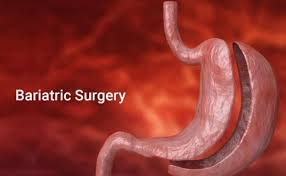
A New Approach in Modern Medicine
Obesity and advanced liver disease are two of the fastest-growing global health problem. Many patients who need a liver transplant also struggle with obesity, diabetes, and cardiovascular disease. Traditionally, obesity increased the risk of poor outcomes after transplant, but new research shows that combining bariatric surgery with liver transplantation offers remarkable long-term health benefits.
1. Sustainable Long-Term Weight Loss
Patients who undergo this combined treatment experience lasting weight loss. Unlike standard weight loss programs, bariatric surgery provides effective and sustainable results. This not only lowers the risk of obesity-related complications but also reduces the overall stress on the transplanted liver.
2. Reduced Risk of Fatty Liver Disease Recurrence
A large percentage of liver failure cases today are caused by non-alcoholic fatty liver disease (NAFLD) and non-alcoholic steatohepatitis (NASH). By promoting healthy weight reduction and improved metabolism, bariatric surgery significantly lowers the chances of fatty liver returning after a transplant.
3. Improved Metabolic Health and Diabetes Control
Studies show that patients enjoy better blood sugar control, lower cholesterol levels, and reduced blood pressure after combined treatment. For many, this means reduced dependence on diabetes medications and a lower risk of cardiovascular disease, one of the leading causes of mortality after transplantation.
4. Higher Liver Transplant Success Rate
By controlling obesity and metabolic complications, this dual approach leads to better graft survival, fewer complications, and improved overall patient survival. Many hospitals report that patients who undergo both procedures enjoy a higher liver transplant success rate compared to those who only receive transplantation.
5. Better Quality of Life
The combination of bariatric surgery and liver transplant provides long-term improvements in mobility, energy, and quality of life. Patients experience greater independence, fewer chronic illnesses, and improved daily function.
Conclusion
The integration of bariatric surgery and liver transplantation is proving to be one of the most promising approaches in modern medicine. It addresses not only life-threatening liver disease but also the underlying causes of metabolic failure. This approach is opening the door to long-term health benefits, higher survival rates, and better quality of life for patients worldwide




